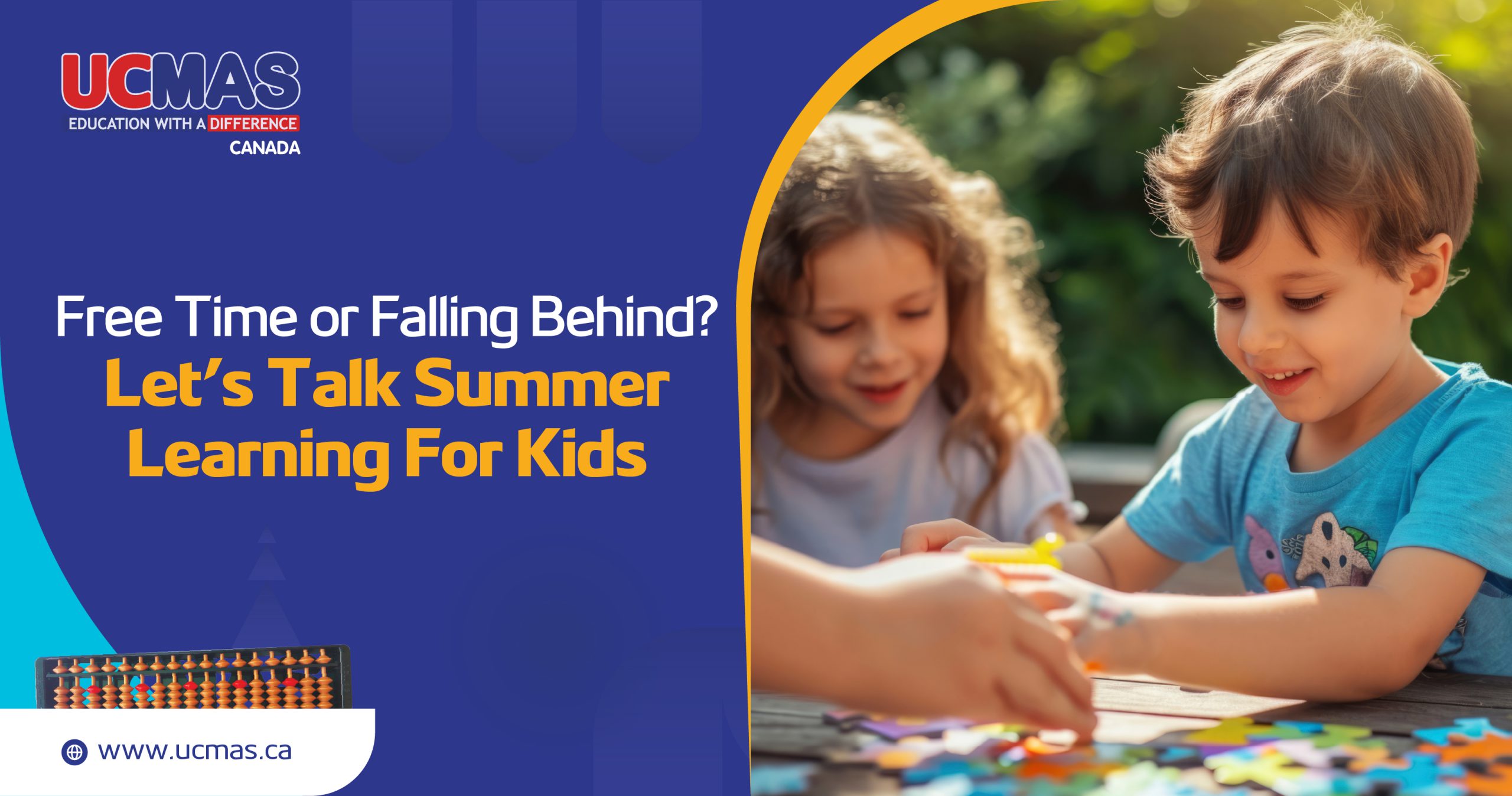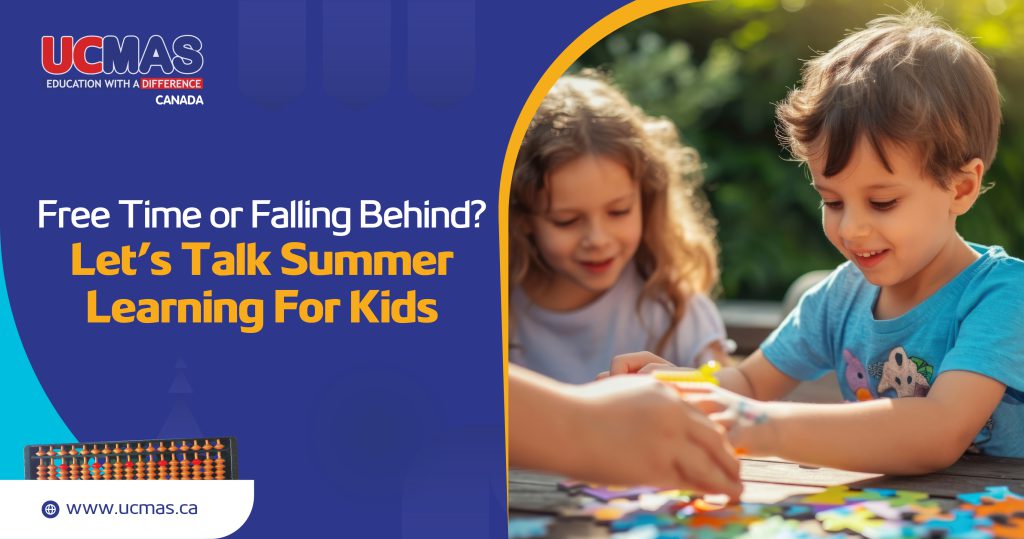
The summer season is of melted popsicles, scraped knees, and kids everywhere chanting the sacred mantra: “No more homework, no more books!” But before we all pack up school bags for good until the reopening of schools, let’s hit pause and ask, should kids really stop studying during the summer?
Is It All Playtime or Should There Be Some Study Time Too?
While it’s tempting to embrace two months of total freedom, research shows that the brain, like any muscle, weakens when it’s not in use. In fact, summer learning loss, also known as the summer slide, is a well-documented phenomenon that affects millions of students every year.
According to a report by the Brookings Institution, students can lose up to 25-30% of their academic gains during the summer break, particularly in math and reading. This loss is even more significant in younger children, and the gap often widens every year if not addressed. So, should kids hit the books while the sun’s still out? Let’s explore both sides of the debate.

The Case Against Studying During Summer
Summer break is sacred in every kid’s calendar. The idea of schoolwork sneaking into their precious downtime might feel like an injustice. And hey, the cons aren’t completely baseless.
1. Kids Need a Mental Reset
After a packed academic year of tests, grades, and structured routines, children deserve a break. Just like adults need vacation days to reset, kids need unstructured time to recharge their emotional batteries.
2. Family Bonding & Travel
Summer is often the only time families can travel together or spend long, uninterrupted days bonding. Study schedules can sometimes interfere with family plans or simply take away from quality time.
3. Learning Through Play
Not all learning has to be in a classroom. Outdoor games, storytelling, gardening, or even kitchen experiments teach essential skills like collaboration, creativity, and critical thinking. So, yes, summer is a time to relax, explore, and let kids just be kids. But… does that mean academics should completely go out the window?

Pros of Some Studying During Summer Make Total Sense
The truth is, while a full academic routine may not be necessary, completely disconnecting from learning can set children back.
1. Preventing Learning Loss
When a child spends two straight months without revisiting basic concepts, it’s only natural for them to forget. Math skills tend to take the biggest hit, something this blog on learning loss explains in detail. Starting the next school year behind creates stress and affects their confidence.
2. Building Better Habits
Light summer learning helps kids develop consistent routines without the pressure of school deadlines. When learning is fun and engaging, it becomes a habit rather than a chore.

3. Short Bursts, Long Gains
A 20-minute mental math session or a fun brain-training activity is enough to keep those neurons firing. This doesn’t mean hours of studying. Think of it like brushing teeth for the brain, a quick daily dose of stimulation to keep everything running smoothly.
Study vs. Play
So what’s the sweet spot? The key isn’t choosing between books or the beach, it’s blending both. That’s where programs like UCMAS Canada’s summer workshops step in. This fun, interactive summer camp for kids allows them to learn, play, interact, and build essential skills, all while having a great time.
These camps are structured more like brain gyms than boring tutoring sessions. Kids use abacuses, games, and challenges to improve mental math, focus, and confidence. It’s not schoolwork; it’s brainwork disguised as fun. For curious minds, you can even explore UCMAS’s mental math worksheets to continue at home in bite-sized chunks.
What to Look For in a Kids’ Summer Program
Whether you’re googling “summer camp for kids near me” or exploring afterschool program options, make sure the program ticks these boxes:
- Engagement: Kids should enjoy what they’re doing. No boring lectures!
- Skill Development: Is the program helping them improve their focus, memory, or problem-solving skills?
- Balance: Does it allow for fun, breaks, and creativity alongside learning?
Programs like UCMAS Summer Camp do all of the above and more. Designed specifically for children aged 5–13, these workshops are tailored to their developmental needs, incorporating math, memory games, and movement activities. If you want to learn how to plan your child’s summer better, this Ultimate Summer Break Guide is a must-read.

Learning That’s Not Boring At UCMAS
Let’s debunk the myth that summer learning is dull. UCMAS makes sure that every child has a blast while building skills that matter, not just for school, but for life. UCMAS Summer Camps are more than just fun; we help children improve their focus, build better habits, and cultivate a healthier mindset.
Whether it’s strengthening number sense, developing concentration, or boosting self-confidence, UCMAS ensures your child grows while they glow under the summer sun.
The final verdict?
Yes, but let’s redefine what “studying” means. It doesn’t have to be textbooks and exams. It can be abacus games, mental math marathons, and problem-solving treasure hunts. The goal is to keep the mind agile, just like we keep our bodies active at the playground. As a parent, you want to give your child the best summer, full of joy, discovery, and growth.
Let UCMAS be your partner in making that happen.
Ready to Make This Summer Count?
Enroll your child at UCMAS today or explore our after-school programs before you take the first step towards their holistic growth.
If you are looking for a fun and productive summer camp, UCMAS has got you covered! Register for UCMAS Summer Camp and turn their summer into a season of smart play!






